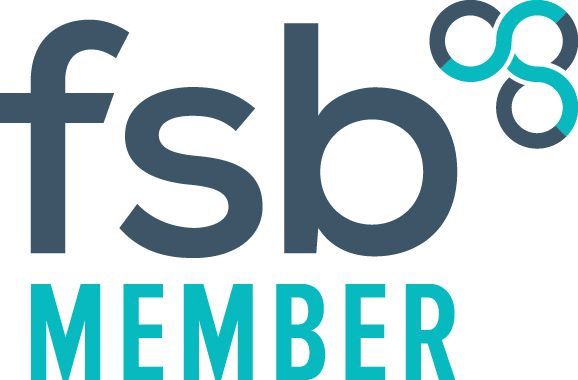With limited resources and often fewer security measures in place, SMEs (small and medium-sized enterprises) face a growing risk of cyberattacks.
However, protecting your business doesn’t have to break the bank.
Cyber threats such as ransomware, phishing scams and data breaches can have devastating consequences, from financial loss to reputational damage.
Fortunately, there are affordable and effective cybersecurity strategies that small businesses can implement to safeguard their operations.
Why Are Small Businesses Targeted?
Many small business owners assume that cybercriminals only go after large corporations, but that’s a dangerous misconception.
In fact:
• 43% of cyberattacks target small businesses (Verizon Data Breach Report).
• 60% of small businesses that suffer a cyberattack go out of business within six months (National Cyber Security Alliance).
• Cybercriminals know that SMEs often lack the security infrastructure that larger enterprises have, making them easier targets.
With cyber threats evolving, proactive protection is essential.
Here’s how you can secure your business on a budget.
Your employees are your first line of defence against cyber threats, but they can also be the weakest link, if they are unaware of potential risks.
✅ Affordable Security Training Strategies:
• Conduct free cybersecurity awareness sessions using online resources from Cyber Essentials UK or NCSC (National Cyber Security Centre).
• Implement phishing simulation exercises to train employees to recognise suspicious emails.
• Establish a clear cybersecurity policy that outlines best practices for handling sensitive data and recognising cyber threats.
💡 Tip: Employees should follow the STOP, THINK, CONNECT rule before clicking on links or opening attachments in emails.
Weak or reused passwords are one of the leading causes of security breaches. A strong password policy is a simple yet effective way to enhance cybersecurity.
✅ Budget-Friendly Solutions:
• Use password managers like Bitwarden (free for individuals) or LastPass (low-cost business plans) to generate and store secure passwords.
• Implement Multi-Factor Authentication (MFA) for all business accounts, adding an extra layer of security.
• Encourage employees to create passphrases instead of simple passwords (e.g., "GreenBusiness!2025$Secure").
💡 Tip: Never use the same password across multiple accounts, and update passwords regularly.
Outdated software is one of the easiest ways for hackers to infiltrate your systems. Cybercriminals exploit known vulnerabilities in outdated programs.
✅ Cost-Effective Strategies:
• Enable automatic updates for operating systems, applications and antivirus software.
• Regularly update firewalls, routers and security software to patch security vulnerabilities.
• Remove unused or obsolete software that may have security flaws.
💡 Tip: Sign up for supplier security notifications to stay informed about critical updates.
An unsecured Wi-Fi network can expose your business to hackers, allowing them to intercept data or deploy malware.
✅ Low-Cost Solutions:
• Change the default Wi-Fi router name and password to something unique and complex.
• Use WPA3 encryption (or at least WPA2) for wireless security.
• Set up a separate Wi-Fi network for guests and employees to prevent unauthorised access to sensitive business data.
💡 Tip: Turn off Wi-Fi when not in use to reduce the risk of external breaches.
Data loss due to cyberattacks, hardware failures or accidental deletions can cripple a small business. Regular backups are essential for quick recovery.
✅ Affordable Backup Options:
• Use free cloud storage solutions such as Google Drive (15GB free) or OneDrive (5GB free) for basic backups.
• Invest in an external hard drive or USB device for offline backups.
• Implement the 3-2-1 backup rule (3 copies of data, stored on 2 different media, with 1 copy offsite).
💡 Tip: Test backups regularly to ensure they can be restored when needed.
Many effective cybersecurity tools are available at little or no cost.
✅ Budget-Friendly Security Solutions:
• Install free antivirus software like Avast, AVG or Microsoft Defender.
• Use firewall protection, which is built into most operating systems like Windows and macOS.
• Secure email with free encryption tools like ProtonMail or StartMail.
• Set up virtual private networks (VPNs) to secure remote connections (ProtonVPN offers free plans).
💡 Tip: Consider Cyber Essentials Certification—a UK government-backed cybersecurity standard that’s affordable and can enhance your security posture.
Even with security measures in place, breaches can still happen. Having a cyber incident response plan ensures your business knows how to react swiftly.
✅ Key Steps in a Response Plan:
• Identify key contacts (IT support, cybersecurity consultant, legal team).
• Establish steps for isolating an attack (disconnect affected devices, reset credentials, inform staff).
• Have a communication plan for notifying customers or authorities if necessary.
• Regularly test and update the plan to stay prepared.
💡 Tip: Use government resources like the NCSC Small Business Guide to build your response plan.
Cyber threats constantly evolve, so staying informed is critical.
✅ Free Resources to Stay Updated:
• Subscribe to NCSC (UK National Cyber Security Centre) alerts.
• Follow cybersecurity news on platforms like Krebs on Security and Cybersecurity & Infrastructure Security Agency (CISA).
• Join small business cybersecurity forums for peer insights and best practices.
💡 Tip: Sign up for Google Alerts on cybersecurity trends relevant to your industry.
Final Thoughts: Cybersecurity is an Investment, Not an Expense
Small businesses may not have the budget of large corporations, but that doesn’t mean they have to be vulnerable to cyberattacks.
By implementing cost-effective cybersecurity measures, SMEs can significantly reduce risks and build resilience against cyber threats.
Start small, stay consistent and prioritise cybersecurity as part of your business operations.
A well-protected business is a sustainable business!
📌 What cybersecurity measures have you implemented in your small business?
Contact Green Catalyst today, to discuss how we can support you to secure your future!


